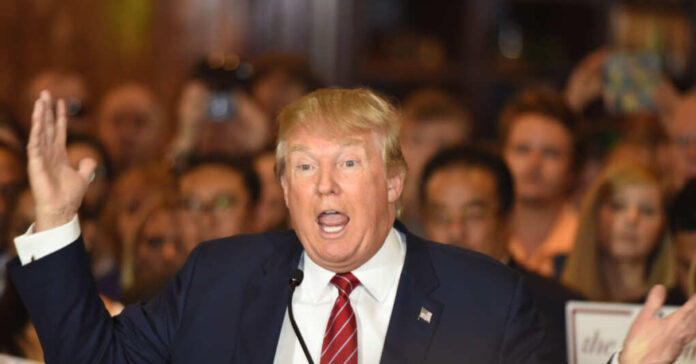
As the witch hunt against former President Donald Trump continues, one judge is laying down the law. The question is, is it legal and just?
If you didn’t already know, Manhattan District Attorney Alvin Bragg has officially filed charges against the former president, claiming that he used campaign funds to silence Stormy Daniels and falsified business records to up his chances of winning the White House in 2016.
Naturally, the case is one of the most high-profile in the nation. It is also why the judge charged with the case just gave Trump a gag order of sorts.
To be clear, the order doesn’t ban Trump from talking about the case. After all, he is a 2024 presidential candidate. However, it does ban him from mentioning any and all “Covered Materials” of the case.
Covered materials are basically any evidence that the prosecution decides to share with the defense before the trial. So if the prosecution finds phone records that they believe prove something and share it with Trump’s lawyers, Trump isn’t allowed to talk about it. And by talk about it, I mean, at all.
According to the order, “any person who receives the Covered Materials shall not copy, disseminate, or disclose the Covered Materials, in any form or by any means, to any third party including, but not limited to, by disseminating or posting the Covered Materials to any news or social media platforms, including but not limited to, Truth Social, Facebook, Instagram, WhatsApp, Twitter, Snapchat, or YouTube, without prior approval from the court.”
Mum is the word.
Additionally, Trump is banned from even seeing a vast majority of this “Covered Material,” including “forensic images of witness cell phones” or even the names of anyone involved in the prosecution.
Trump can only see “Limited Dissemination Materials” and only when his attorneys are present.
Naturally, the order comes straight from Bragg’s office, which claims that Trump has a “longstanding” history of attacking and intimidating those involved in the legal process. Therefore, Trump must be limited in his knowledge of the case and those involved for their safety.
Of course, Trump and his attorneys say the order directly violates his constitutional rights, namely his right to free speech. Additionally, it prohibits Trump from sharing his side of the story.
Needless to say, Trump is fighting the order. But, like everything else, it seems to be an uphill battle.














